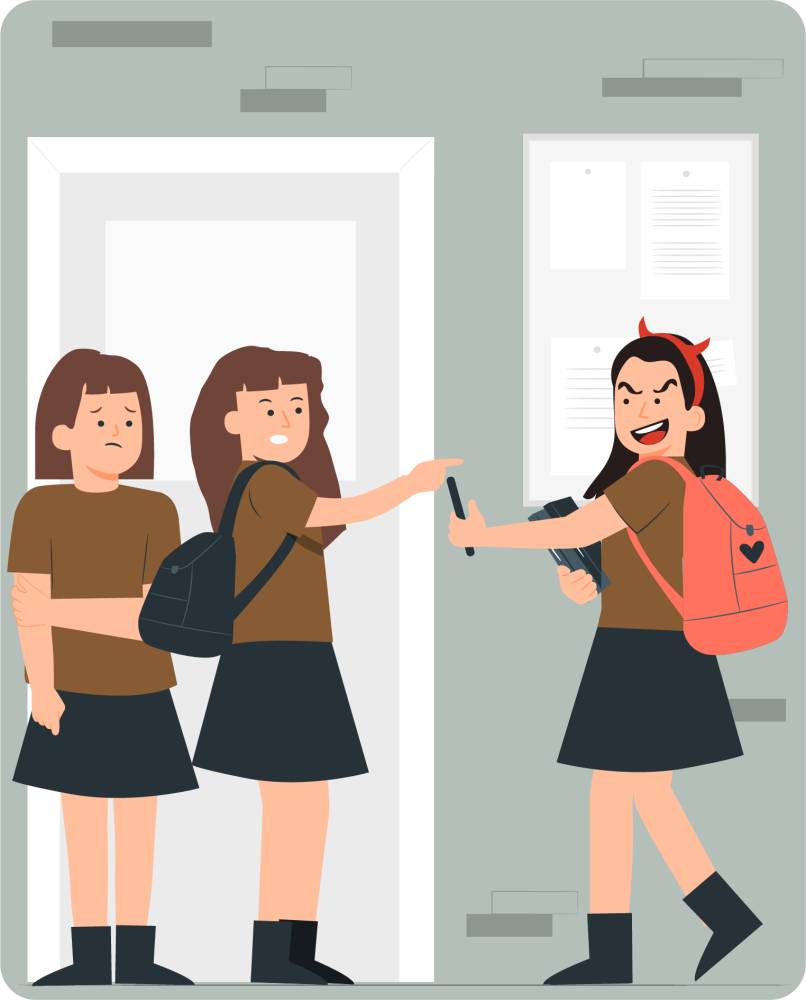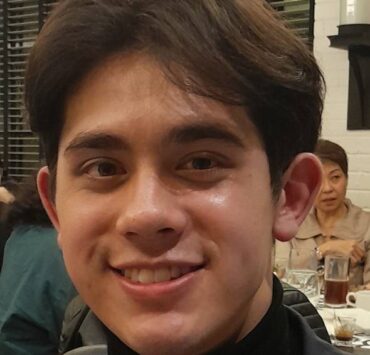Defending the right to defend from bullying

Eleven-year-old Zoe (not her real name) was an outstanding student at an exclusive girls’ school. A 13-year-old hit her friend, so Zoe impulsively hit the bully back. Both girls got conduct penalties, but it didn’t make a difference to the bully with lackluster academics. It did to Zoe, who lost her place for distinction.
“Schools aren’t equipped to adjudicate nuanced faults,” said Zoe’s dad Bert (not his real name). When kids hit back in self-defense, what should the school do? “That’s honestly a tough call, but having well-educated, qualified people who understand children’s development and dynamics on board helps.”
As a student, Bert was suspended a few times for defending himself. The school discipline officer at the exclusive boys’ school he went to was ex-military.
“His idea of finding a culprit was asking the class to point out who they think was a suspect in a theft. When enough points to someone they’re picking on, he’d try to intimidate them to confess. There would be no evidence, but the stigma was embedded.” The discipline officer has since worked as a security consultant at a logistics company.
Zoe took the penalty on the chin. “I told her she was right, but she needed to choose her battles and that we were still proud of her,” said Bert.
Established patterns
Since he found the school’s academic program and worldview ‘antiquated and unmoving,’ with the authorities reportedly even shaming a grooming victim, he and his wife moved their daughter to a co-ed school, where she had another encounter.
“This kid, who was diagnosed with autism only recently, is a serial provocateur and picks on girls, gays, and odd kids. Zoe used wit to take him down. One time, he just randomly hit her and she reported him. His mom was very apologetic and said he wasn’t like this before,” said Bert.
While he said that Zoe’s new school is more proactive, he realized it takes effort considering the number of students. “Undiagnosed autistic kids hit puberty and they go aggro (aggressive). Parents are called in and kids are counseled on both sides, but when imminent harm is evident the kid is normally told not to re-enroll.”
What would have been a fair judgment to him, as a parent? “Decide on fault in degrees. Bullies have established patterns. They make victims pay for schools’ inability to rein in these kids. If, in real life, courts do that, why can’t school authorities?” he said.
High price of self-defense
Is it fair for a victim who fought back to get punished? Bert said it depends; there must be a proportionality. In Zoe’s case, in her old school, he considered the broad-stroke approach unethical: “She was defending a friend, that much was admitted. But it did not affect the sanctions meted out because schools don’t have the bandwidth.”
What did the school say they expect their students to do in that situation? “Nothing. Report it. If one should assault a teacher, would they be allowed to defend themselves without punishment? The ethics are stupid, the values, lazy. To stop bullies we need to identify them. To stop being the bully we need to understand what makes one. Some bullies act out to get attention and affection; some, to feel invulnerable from abuse; others are just sociopaths. Life is nuanced. People can’t oversimplify it,” he said.
Bert advised parents in the same boat, “Remind your kid that doing the right thing is worth not receiving an award that hides behind false righteousness.”
I suggested kids be taught how to subdue bullies or diffuse tense situations with drills and role play. He added that we need to ask more precise questions, like, how do we equip schools to handle these matters ethically and effectively? “There are many moving parts, but we also need to teach kids to have a sense of humor,” Bert said.
Cruel jokes
The daughters of Corinne (not her real name) did not experience physical assault in school. However, malicious rumors were spread about one while another endured cyberbullying.
It turns out one bully’s parents were going through separation. When the school mentioned this to Corinne, she shot back, “‘Hindi therapy ang anak ko!’”
She also noticed how kids’ jokes can be cruel, like: “Your parents don’t love you,” or “your parents are busy because you are a nobody.”
“It may sound funny to them, but for kids going through something, it can be hurtful and trigger so many behaviors,” she said.
“I entrust the school to look after the safety of my kids. If they are not doing their job, I am always ready to sue them. They avoid this to keep the ‘brand’ of the school. This is always my posture,” she said.
It’s happened often enough that she prepares, researches, and carefully structures all her written conversations and discussions with the school authorities. “I go to the lengths of seeking a lawyer’s opinion to check my arguments and narratives before I engage,” said Corinne.
Coping mechanisms
She recommended reading the school’s Safe Spaces Act before filing a formal complaint. “Write it as if you’re building a legal case. Structure it by stating the situation (cite violations against clauses in the school handbook when you describe what happened), when the incident occurred, and how often.
“Identify the perpetrators’ names, the complainant’s good traits, and the incident’s effect on them. Then, make your demands. Seek the school’s support based on your faith that they do not tolerate these behaviors. At the school hearing, never use words like ‘retaliated’ or ‘fight back;’ just stick to ‘self-defense.’”
In parallel, Corinne advised talking to your child to reinforce that they must be brave. Try to find proof from CCTV, chat groups, or statements of friends/witnesses.
“It is upsetting seeing our kids struggle. Are they expecting kids to just bear it? The victim should not be sharing the consequences of a bully’s actions. It doesn’t make sense, especially if the perpetrator has no remorse,” she said.
“But a friend told me that the earlier they go through this, the easier it will be for them to figure out how to manage and find their coping mechanisms, while we are still around.”
Corinne realized the key is for kids to surround themselves with good people, and parents need to define what “good friends” are.

















